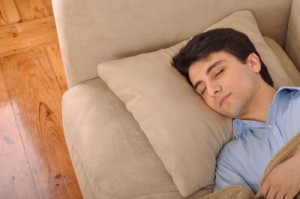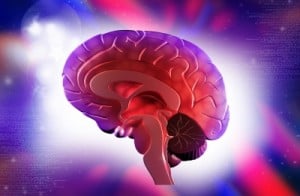 Everyone knows the feelings of tossing and turning at night, not being able to sleep, but what happens when this frustrating experience repeats every night? Getting through an average day becomes nearly impossible due to an extreme increase in stress from not getting the proper rest a person needs. Increased irritability and overall sleepiness throughout the day also trouble a person who has not been able to sleep well. Work and/or school become even more challenging because the ability to focus is so heavily dependent on a good night’s rest. Insomnia describes a sleep disorder where people either have trouble falling asleep or trouble staying asleep throughout the night, leaving people exhausted upon waking and often throughout the rest of the day.
Everyone knows the feelings of tossing and turning at night, not being able to sleep, but what happens when this frustrating experience repeats every night? Getting through an average day becomes nearly impossible due to an extreme increase in stress from not getting the proper rest a person needs. Increased irritability and overall sleepiness throughout the day also trouble a person who has not been able to sleep well. Work and/or school become even more challenging because the ability to focus is so heavily dependent on a good night’s rest. Insomnia describes a sleep disorder where people either have trouble falling asleep or trouble staying asleep throughout the night, leaving people exhausted upon waking and often throughout the rest of the day.
Acute insomnia specifies a short-lived period in which the insomnia occurs while chronic occurs over a longer period of time. Chronic insomnia can be related to depression, anxiety, physical pain, and/or chronic stress.
In addition, there are two types of insomnia: primary and secondary. Primary insomnia indicates that the inability to sleep does not stem from any other health concerns or mental conditions, whereas secondary insomnia is associated with other illnesses and issues, such as depression, emotional troubles, arthritis, cancer, or the consumption of other medications or alcohol.
Natural Remedies
Often times, acute insomnia can be treated by simply preparing for sleep by changing bedtime behaviors. Experts suggest that a person struggling with insomnia should try to maintain a schedule or follow a routine, and attempt to go to sleep and wake up at the same time every day. This way the body becomes used to the routine. Other tips include:
- Avoid naps during the day as they make people feel less tired at night.
- Avoid alcohol, as it has been known to disrupt sleep cycles and can cause middle of the night waking.
- Avoid caffeine and nicotine (completely, if possible), especially late in the day, as they are stimulants.
- Get regular exercise, because it will increase sleepiness towards the end of the day.
- Exercise in the morning if possible, because night exercise may produce too much energy to fall asleep.
- Refrain from using electronic devices, including television, computer, smart phones, ipads, etc. for about 30 minutes prior to bedtime. The light from the screens prevents the release of melatonin, a naturally produced sleep hormone. Additionally, the brain is being stimulated by the electronics when the person should be focusing on becoming calm.
- Do not eat big, heavy meals before bed. If hungry, eat a small snack.
- Make a to-do list before going to bed for the next day so the brain does not stay up worrying.
- Try to only lie in bed when trying to go to sleep, so the body will make an association with sleeping and being in bed, which will release melatonin.
- If none of these tips work or if woken up in the middle of the night, get up, walk around a little, and do an activity (such as reading) for a while until feelings of sleepiness begin.
How Neurofeedback Can Help
Sleep disorders are based in the brain, and therefore can be helped with neurofeedback. Because chronic insomnia is often caused by existing conditions in the brain, neurofeedback is able to identify and correct disruptions in the brain. With proper treatment protocol and a series of brain-training sessions, improvements can be made in a person’s ability to sleep and stay asleep throughout the night. Additionally, other underlying issues, which may have been unknown before the brain map, will be addressed as well, such as depression and anxiety.
The quality of a person’s sleep can affect their whole life, and improvements in sleeping habits will reduce stress and anxiety, and will help improve overall performance in school, work, and other activities. To learn more, schedule a free consultation with our director Dr. Jolene Ross.
Image courtesy of artur84 at FreeDigitalPhotos.net








